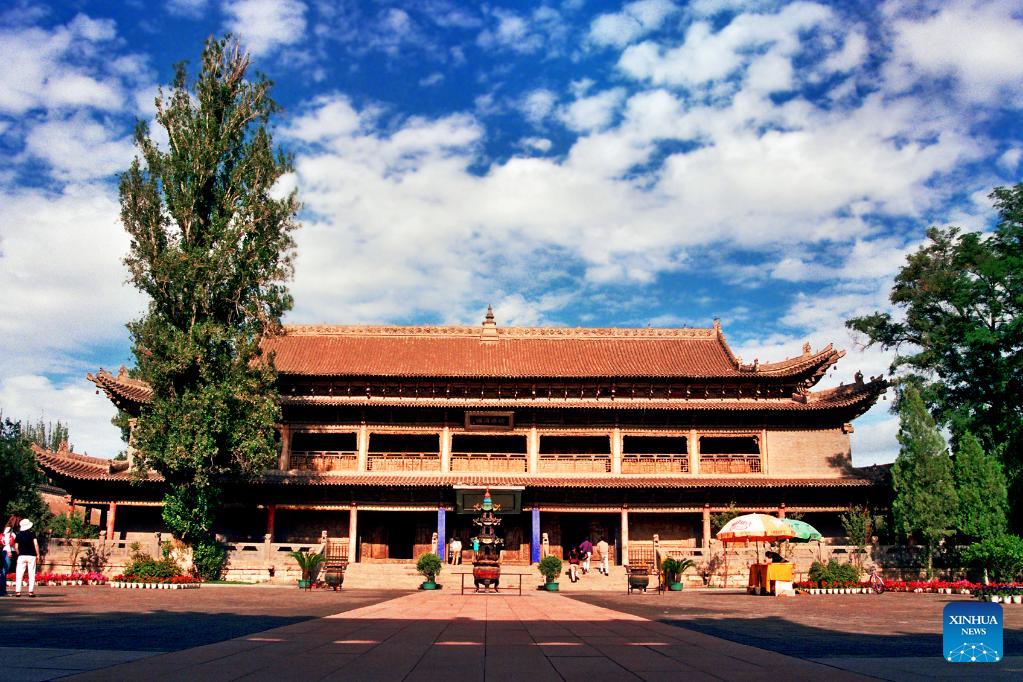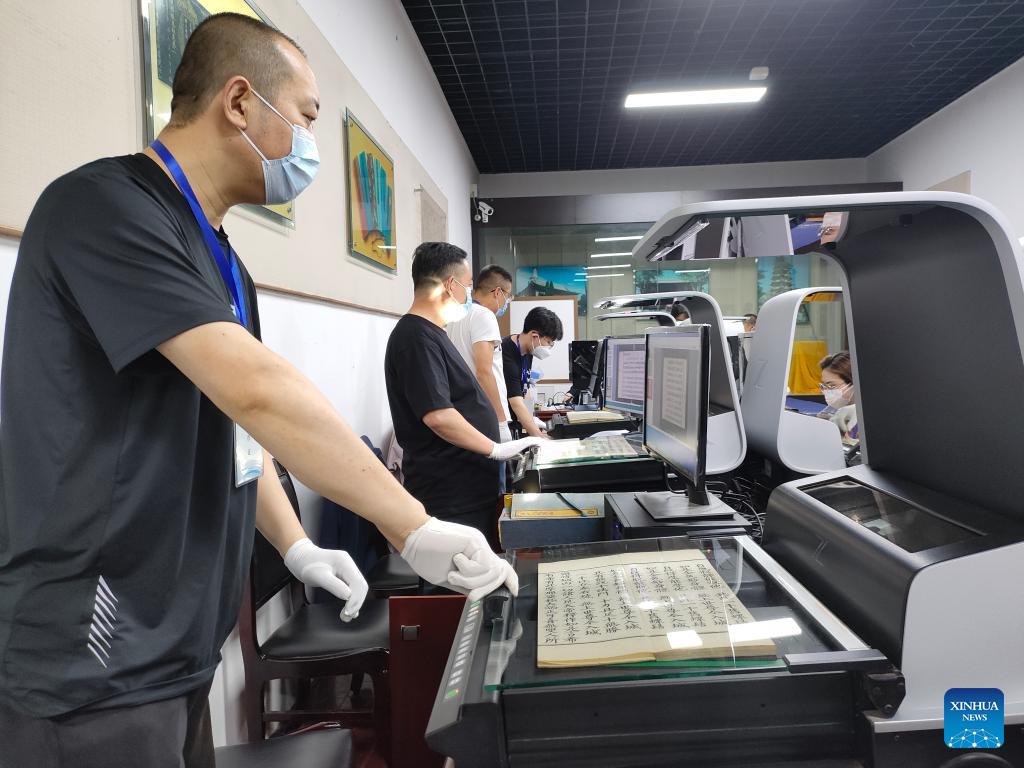Centuries-old temple in NW China to be digitalized
 0 Comment(s)
0 Comment(s) Print
Print E-mail Xinhua, May 29, 2023
E-mail Xinhua, May 29, 2023

This undated photo provided by the cultural relics institute of Zhangye Giant Buddha Temple shows the Grand Buddha Hall of the Giant Buddha Temple in Zhangye City, northwest China's Gansu Province. (The cultural relics institute of Zhangye Giant Buddha Temple/Handout via Xinhua)
China has started digitalization work of a Buddhist temple in northwest China's Gansu Province dating back more than 900 years ago.
Giant Buddha Temple, also known as the Dafo Temple in Zhangye City, was built in 1098 during the Western Xia Dynasty (1038-1227) and is an important ancient temple on the Silk Road.
This time, digital information from the Grand Buddha Hall, the Library of Buddhism, and a pagoda, including about 30 figures in the hall, frescos of more than 530 square meters as well as carvings on the bricks, is to be collected.
When the work is completed, visitors will be able to see the temple's layout in different dynasties, the construction process of the large reclining Buddha, as well as Buddhist legends on the frescoes in the new digital gallery, according to Wang Kang, head of the cultural relics institute of Zhangye Giant Buddha Temple.
He noted that the temple had gone through several renovations and reconstructions in the Ming and Qing Dynasties (1368-1911), and digital technology made it possible for people to see its original appearance.
For the sake of protection, the second floor of the Grand Buddha Hall is normally closed to the public. "In the future, people will be able to see all parts of the hall in the digital world," Wang added.
Digitalization work will be extended to other items and buildings in the temple complex in the next step.

This undated photo provided by the cultural relics institute of Zhangye Giant Buddha Temple shows technicians digitalizing items preserved in the Giant Buddha Temple in Zhangye City, northwest China's Gansu Province. (The cultural relics institute of Zhangye Giant Buddha Temple/Handout via Xinhua)





